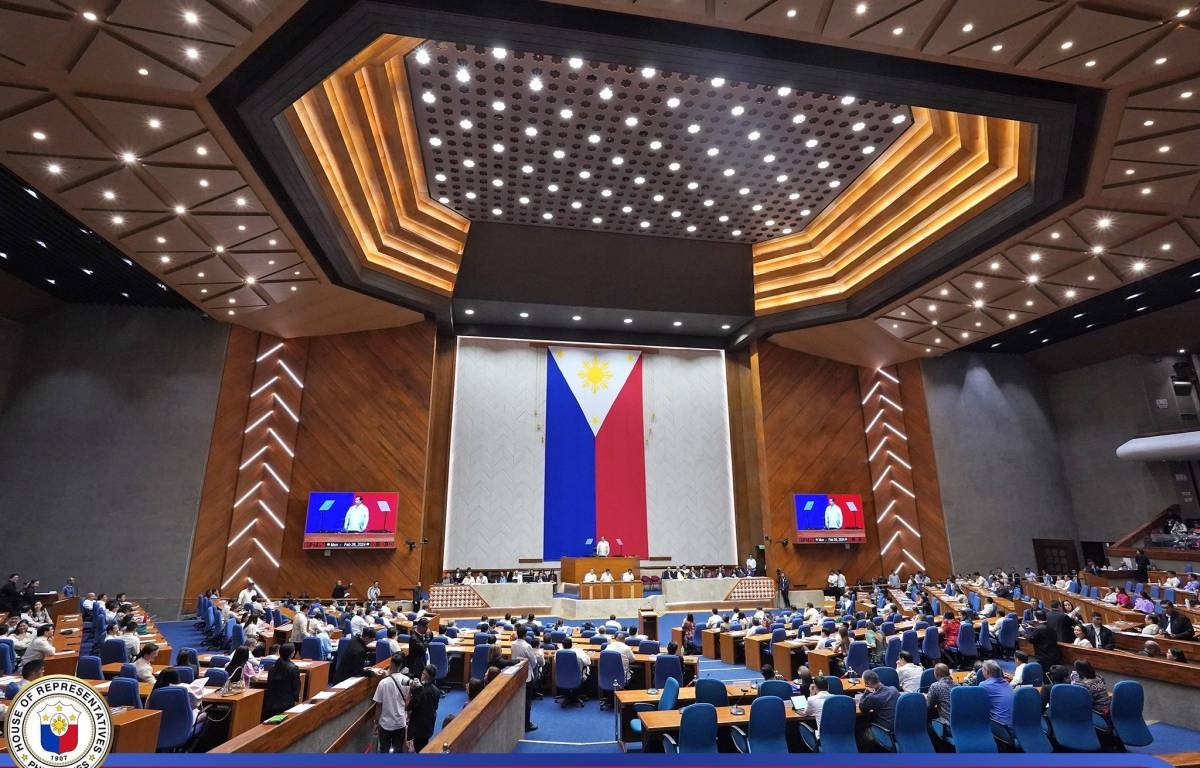MANILA, Philippines: In a significant development, the House of Representatives’ Committee of the Whole has given its approval to Resolution of Both Houses (RBH) 7. This resolution aims to amend specific economic provisions of the 1987 Constitution, marking a potential shift in the country’s economic landscape.
The committee deliberations, which began on March 4, 2024, were attended by various resource persons. The approval of RBH 7 follows a similar resolution, RBH 6, filed in the Senate. The focus of both resolutions is on amending Article XII (Section 11), Article XIV (paragraph 2 of Section 4), and Article XVI (paragraph 2 of Section 11).
The proposed amendments seek to introduce the phrase “unless otherwise provided by law” to the aforementioned provisions, allowing for greater flexibility in their interpretation and implementation. Additionally, the resolutions aim to include the word “basic” before “educational institutions” in the first sentence of paragraph 2, Section 4 of Article XIV.
While the approval of the resolution by the Committee of the Whole is a significant step forward, it must now be presented to the House plenary for further deliberation and voting by the lawmakers. The final decision will determine whether the proposed amendments will be incorporated into the 1987 Constitution.
It is important to note that the process of amending the Philippine Constitution is governed by specific guidelines. According to the 1987 Constitution, amendments or revisions can be proposed either by the Congress, through a 3/4 vote of all its members, or by a constitutional convention.
In addition to these avenues, the Constitution also allows for direct proposal of amendments through initiative. To initiate this process, a petition must be filed by at least 12 percent of the total number of registered voters, with each legislative district represented by at least three percent of the registered voters therein.
The approval of RBH 7 by the Committee of the Whole signifies a potential shift in the economic landscape of the Philippines. By amending the economic provisions of the 1987 Constitution, the government aims to create a more conducive environment for economic growth and development.
These proposed amendments, if passed into law, could open up opportunities for increased foreign investment, stimulate job creation, and foster innovation in various sectors. The inclusion of the phrase “unless otherwise provided by law” can provide the necessary flexibility to adapt to changing economic circumstances and address the evolving needs of the country.
Furthermore, the addition of the word “basic” before “educational institutions” in the proposed amendment to Article XIV reflects the government’s commitment to prioritize and strengthen the foundational aspects of education. This amendment aims to ensure that the educational system in the Philippines focuses on providing a solid and comprehensive foundation for all students.
It is important to recognize that any amendment to the Constitution carries significant implications for the country and its citizens. The approval of RBH 7 by the Committee of the Whole is just the first step in a lengthy and rigorous process. The proposed amendments will undergo further scrutiny and debate in the House plenary, where lawmakers will vote for or against the resolution.
As the legislative process unfolds, it is crucial for policymakers to consider the diverse perspectives and interests of the Filipino people. The potential economic reforms brought about by these amendments should be balanced with the need to protect the rights and welfare of all citizens.
In conclusion, the approval of Resolution of Both Houses (RBH) 7 by the House of Representatives’ Committee of the Whole marks a significant milestone in the ongoing efforts to amend the economic provisions of the 1987 Constitution. The proposed amendments aim to enhance economic flexibility and prioritize foundational education. As the resolution moves forward to the House plenary, the lawmakers will have the responsibility to carefully deliberate and make informed decisions that will shape the future of the Philippines.







